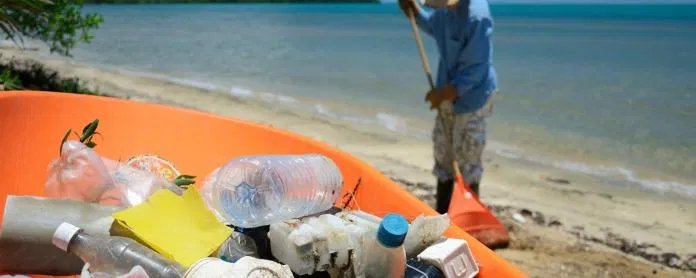
OVERVIEW
MANAGEMENT
PERFORMANCE
POSSIBILITIES
CAPITALS
ACTIVITIES
ACTORS
BURGESS
Plastic Pollution | ||
|
Burgess COMMENTARY Peter Burgess | ||
Global audit reports just how much pollution giants like Coca-Cola and Nestle create
Break Free From Plastic bins to end global plastic pollution by identifying these giant polluters and making them accountable.

SOURCENationofChange A new report from Break Free From Plastic was released yesterday from a global environmental coalition identifying the world’s top corporate plastic polluters. “By combining hard data, citizen science, and community organizing, brand audits have become a powerful tool for recording and tracking down the companies responsible for polluting the planet with plastic,” the report states. “Our analysis of this year’s data reveals the following as the 2019 Top Global Polluters: Coca Cola, Nestle, PepsiCo, Mondelez International, Unilever, Mars, P&G, Colgate-Palmolive, Phillip Morris, and Perfetti Van Mille.” The tally of pollution totals was determined last month on World Cleanup Day and the results were finally released. There were 484 cleanups throughout 50 countries that took place where over 476,423 pieces of plastic waste were collected and sorted. Coca-Cola was noted as the top polluting brand being a major source of plastic in Africa and Europe and the second-largest source in Asia and South America. Nestle was the top polluter in North America. “Any time our packaging ends up in our oceans — or anywhere that it doesn’t belong — is unacceptable to us. In partnership with others, we are working to address this critical global issue, both to help turn off the tap in terms of plastic waste entering our oceans and to help clean up the existing pollution,” response Coca-Cola after the audit’s release. Unfortunately, a lot of these major companies have promised and offered false solutions to the plastic crisis. Hopefully, those that have been “called-out” will take responsibility and address the plastic pollution crisis they have created. Even though a lot of products claim to be 100% recycle, the issue of pollution should still be a priority. According to Daily News, Plastic polymer chains shorten when they are recycled, and this deteriorates quality, the report said. Plastic bottles can be recycled a few times, but there are limits — and some plastic is turned into items including clothing, construction materials or other products that are often not recycled again. And Vice states that only 9 percent of the world’s plastic waste is actually recycled. This means that the rest are either incinerated, or end up in landfills, in the ocean, or our surroundings. Break Free From Plastic and advocates are calling on these corporations to reduces their production of single-use plastic packaging and focus on creating innovative replacements. TAGSNestléplastic pollutionpollution crisis SHARE Facebook Twitter Previous article What will happen when robots take over? Next article ExxonMobil’s climate fraud case finally goes to trial Amanda Mills Amanda Mills NationofChange board member and activist.
By Amanda Mills
| October 24, 2019 The text being discussed is available at | https://www.nationofchange.org/2019/10/24/global-audit-reports-just-how-much-pollution-giants-like-coca-cola-and-nestle-create/ and https://www.breakfreefromplastic.org/wp-content/uploads/2019/10/branded-2019-web-FINAL-v2-1.pdf |